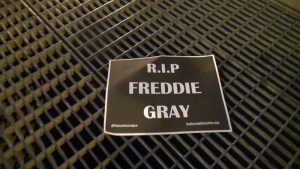 The rationale behind the laws relating to unlawful use of a weapon in Chicago are simple. First of all, they are designed to protect the public from harm by making it incredibly difficult and illegal to obtain a firearm. Secondly, the rules must take into account the perspectives of the gun lobby, which aims to take guns out of the hands of criminals whilst allowing unfettered access to the rest of the population. Recently there has been concern about mentally disordered people who may have no criminal record and therefore fully entitled to own a gun until they engage in mass killings. Those who deal with civil rights are not satisfied with the uneasy compromise because according to them the law is never blind in these instances. Ethnic minorities are likely to get stiff punishments for illegally owning a gun and yet when “white” defendants engage in mass murder; every effort is made (led by a compliant media) to find psychological defenses for them.
The rationale behind the laws relating to unlawful use of a weapon in Chicago are simple. First of all, they are designed to protect the public from harm by making it incredibly difficult and illegal to obtain a firearm. Secondly, the rules must take into account the perspectives of the gun lobby, which aims to take guns out of the hands of criminals whilst allowing unfettered access to the rest of the population. Recently there has been concern about mentally disordered people who may have no criminal record and therefore fully entitled to own a gun until they engage in mass killings. Those who deal with civil rights are not satisfied with the uneasy compromise because according to them the law is never blind in these instances. Ethnic minorities are likely to get stiff punishments for illegally owning a gun and yet when “white” defendants engage in mass murder; every effort is made (led by a compliant media) to find psychological defenses for them.
Preparing to Defend a Case of Unlawful Use of a Weapon
The attorney is expected to engage in what amounts to a background check of their defendants. This was particularly important in a high profile case that involved the gang-related drive-by shooting of Michael Arquero. The victim in this case soon turned into a defendant and the discovery was now all about proving that Arquero was not really as bad as his criminal record indicated. Using aliases he had been able to access weapons, highlighting the weaknesses of the entire system. The defense strategy that was chosen for the occasion was that of self-defense; one which sometimes requires the appearance of “clean hands” under the rules of equity. Following the investigation the prosecutors still accepted the prima facie case that Arquero had shot his attackers in self-defense although it appeared that he had no right to have a gun in the first place.
 Chicago Criminal Lawyer Blog
Chicago Criminal Lawyer Blog











